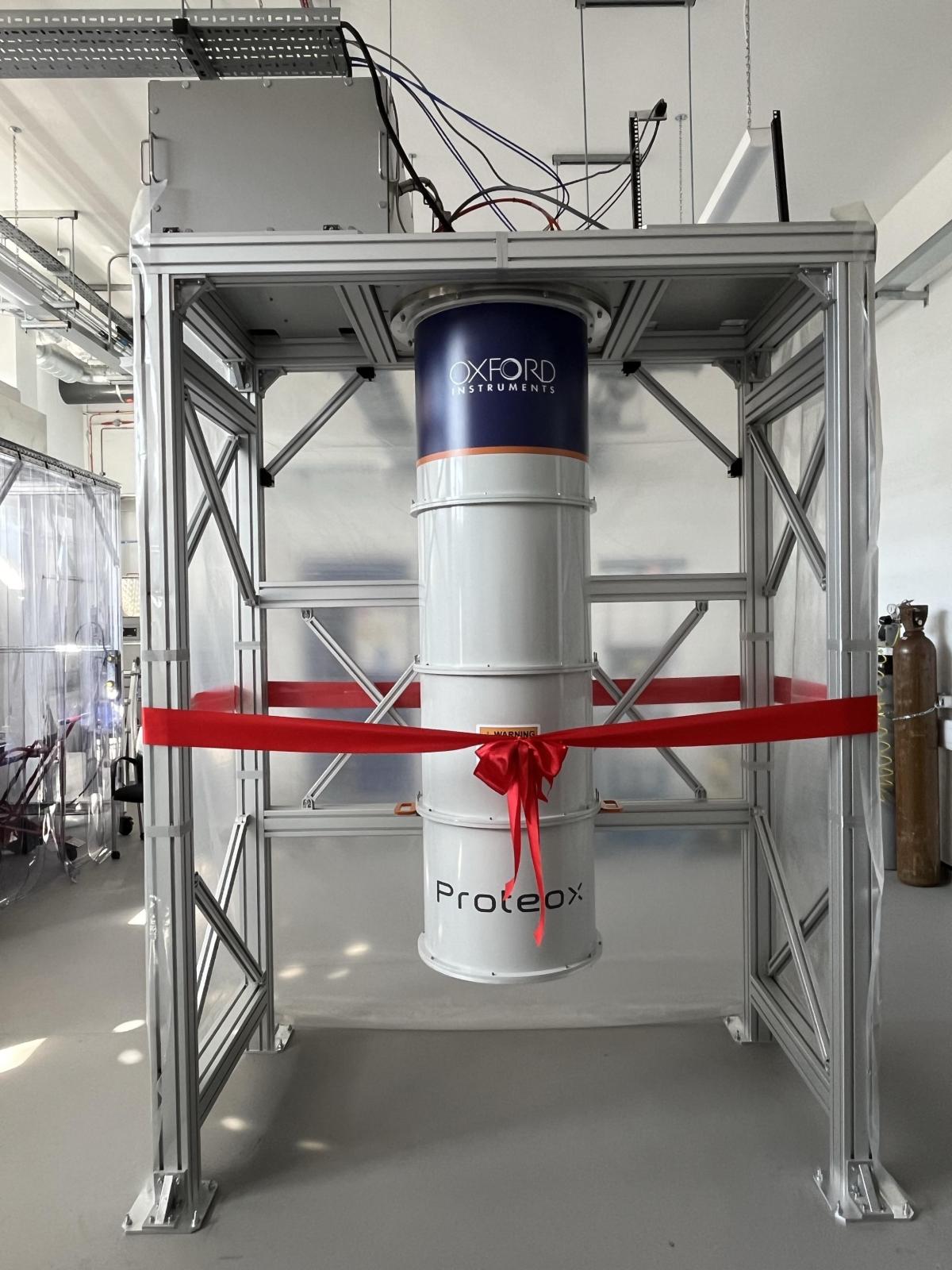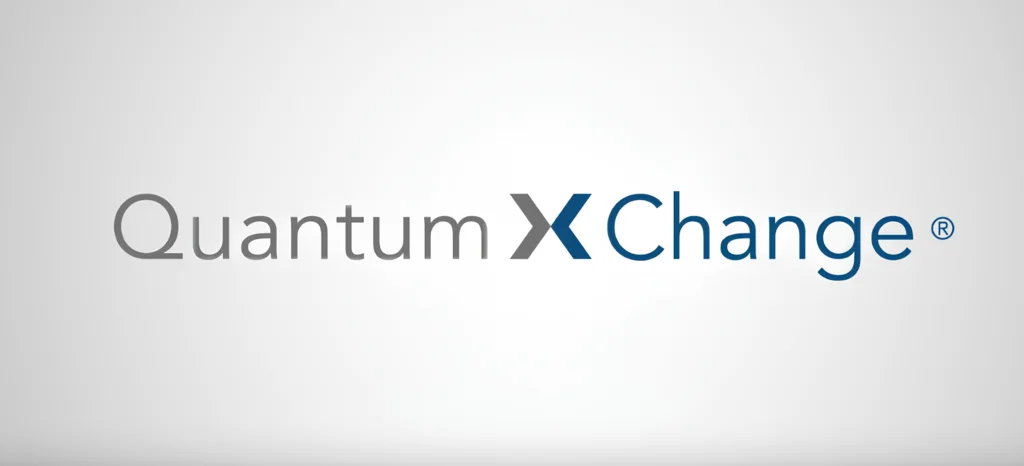Insider Brief:
- The University of Sheffield has launched a new ultra-low temperature facility featuring the Oxford Instruments NanoScience ProteoxMX dilution refrigerator and superconducting magnet, aimed at dark matter and qubit research.
- Funded by UKRI and STFC, the facility supports the Quantum Sensors for the Hidden Sector (QSHS) collaboration and provides a hub for quantum technology research and training for UK students.
- The ProteoxMX refrigerator enables ultra-low temperature environments for dark matter detection and quantum electronics measurements, contributing to research on axions, quantum amplifiers, and qubits.
- The facility will offer hands-on experience in cryogenics and quantum instrumentation to PhD students and undergraduates, preparing them for careers in industries such as quantum computing.
PRESS RELEASE — The University of Sheffield has opened a new ultra-low temperature facility for dark matter and qubit research, providing a hub for students in the UK and expanding the scope of quantum technology research at the university. The University selected the ProteoxMX, a state-of-the-art dilution refrigerator and superconducting magnet manufactured by Oxford Instruments NanoScience for its facility.
Funded by UK Research Councils (UKRI) through the Science and Technology Facilities Council (STFC), it is the first closed cycle dilution refrigerator at the University of Sheffield.

The refrigerator will be utilised by the Quantum Sensors for the Hidden Sector (QSHS) collaboration, led by Professor Ed Daw.
The laboratory was officially opened in the School of Mathematical and Physical Sciences by Professors Ian Shipsey, Koen Lamberts and Ed Daw. The dilution refrigerator is allowing scientists to probe fundamental physics at the quantum level, search for dark matter, and nurture a new generation of young scientists in the North.
The ProteoxMX is well suited to dark matter detection research as it generates the ultra-low temperature environment needed to detect extremely weak dark matter signals. The University chose Oxford Instruments due to its combined expertise in cryogenics and magnets, developing and managing both technologies in-house to support successful integrations into lab environments.
As well as searching for axions, or dark matter particles, the research has implications in quantum instrumentation and quantum computing because the Proteox will be used to make precise measurements of the performance and properties of quantum electronics devices such as amplifiers, power sensors, and engineered two-state quantum systems called qubits.
Special guests including Sir Keith Burnett, Chair of the QSHS project Oversight Committee, joined colleagues for the opening and an inspiring talk delivered by Prof Ed Daw that explained how the facility will be at the forefront of quantum physics for years to come.
There will also be opportunities for PhD students and undergraduates to gain experience in ultra-low-temperature physics and the operation of dilution refrigerators, a skill highly relevant to growth areas in industries such as quantum instrumentation and quantum computing.
Professor Ed Daw said, “It’s been really great seeing the fridge and magnet taking shape, and being installed. I look forward to many years of quantum physics here at Sheffield. We have already had our first visitors from the US using this facility, and have succeeded in cooling many kilograms of copper and stainless steel to 18mK, as well as maintaining this temperature in our apparatus in the magnetic field.”
Matt Martin, Managing Director of Oxford Instruments NanoScience said, “We are excited to support Sheffield’s new ultra-low temperature facility. The overlapping dual track of qubit and dark matter research is an extremely promising field and a unique application for our technologies. With our in-house expertise in superconducting magnets and dilution refrigerator technologies we are ideally positioned to support dark matter and qubit researchers. We look forward to continuing our collaboration with Sheffield as its research endeavours continue.”
Angela Warren, Project Manager, said, “The newly refurbished laboratory is now up and running and this apparatus will enable experiments that haven’t been tried and tested before. It will open up more exciting opportunities ahead in the search for axions and in working towards solving problems in the search for hidden sector dark matter. We look forward to working with new and existing researchers, both in the UK and internationally.”















